COVID-19 Member Flash Poll — Wellness Results
ACC continues to monitor the effects that COVID-19 is having on our membership and the in-house counsel profession. In a third flash poll related to the consequences of the pandemic, we inquired about personal wellness and work habits. This is a crucial issue, as social distancing, teleworking, and the establishment of lockdowns across the globe have dramatically impacted the legal department.
Five thousand ACC members were randomly selected to participate in this survey and we received a total of 460 responses. The survey opened on June 3 and closed on June 8. The results are presented below.
Almost 9 out of 10 participants indicated that they are currently working remotely, while 12 percent reported working in their organization’s physical space. Among surveyed participants, only a combined three percent have either lost their jobs or been furloughed.

A majority of those who reported working from home (53 percent) indicated that they are working more hours compared to working on-site. Forty percent say they work about the same amount of time, and only 6.7 percent reported working fewer hours.
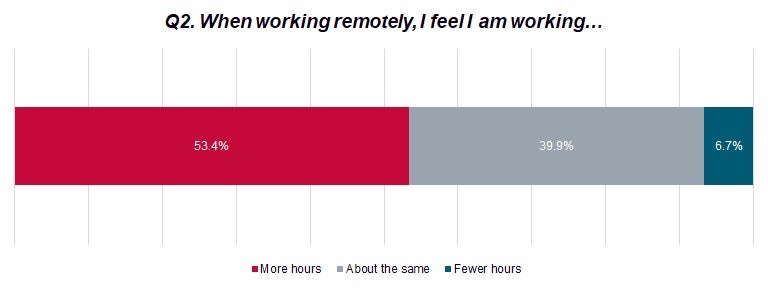
Participants have tried to stay in touch with friends and relatives during this period of social distancing and stay-at-home orders. Sixty-eight percent reported staying in touch with loved ones often via text messages. Eighty-five percent indicated talking to relatives and friends on the phone at least sometimes, and 77 percent used video conferencing tools.
In-person contact, on the other hand, was rare. Seventy-three percent of participating members reported that they rarely or never met in person at someone’s home in the past two weeks, and 82 percent reported avoiding in-person contact with friends and relatives in public spaces.
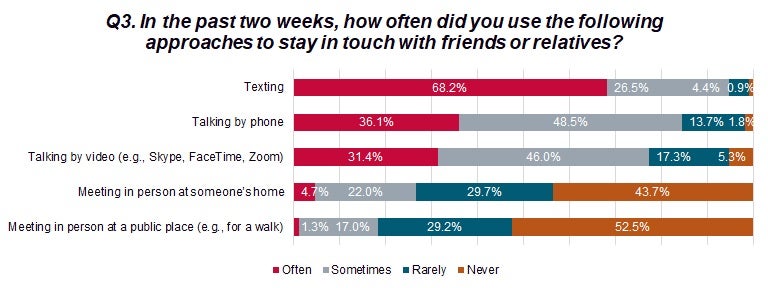
Respondents were asked whether they had experienced any wellness issues since the COVID-19 outbreak. Although less than half of the respondents reported experienced any of the listed symptoms, only 12.7 percent reported not having had any wellness-related problems. One in two reported feeling tired or having trouble sleeping (49 percent), and at least 40 percent admitted having experienced anxiety, felt nervous, and had trouble concentrating.
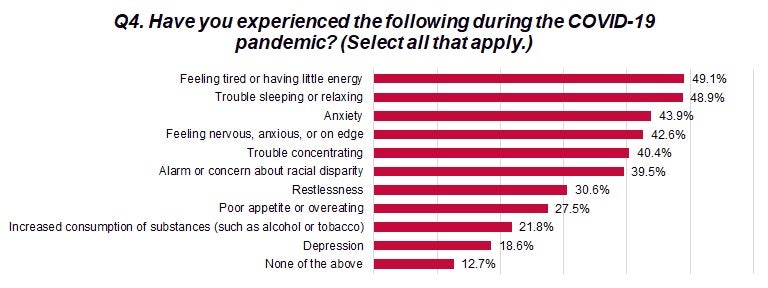
Despite these wellness-related challenges, most surveyed members (84.2 percent) felt positive towards work at their company.
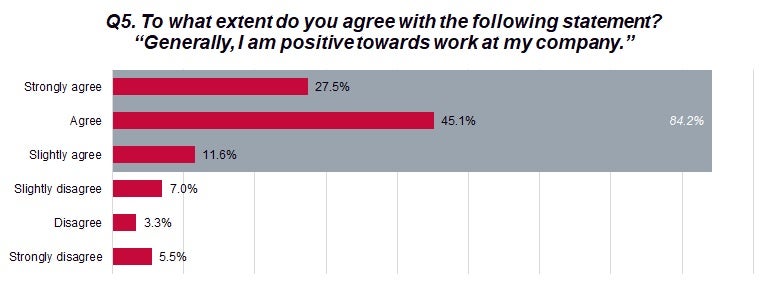
However, this positive feeling does not necessarily translate into being able to switch off completely from work-related matters. Only half of participating members indicated they were able to, while 18 percent and 23 percent slightly disagreed and disagreed, respectively, with the statement that they could switch the focus away from work and make time to rest easily.
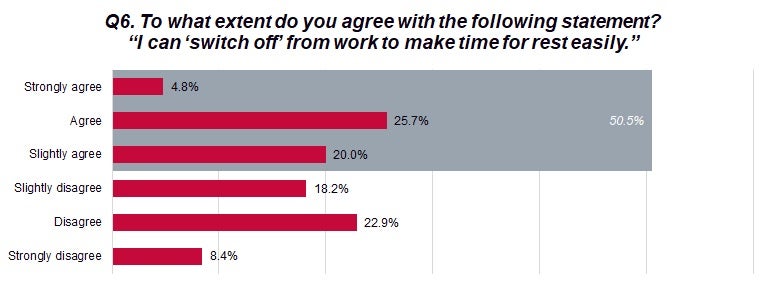
The near even split between participants on the ability to switch off from work is reproduced in the reported level of burnout. Forty-four percent indicated their burnout level as moderate, the middle point on a five-point scale. Thirty percent reported their burnout level to be high or very high and 26 percent indicated it to be on the lower end.
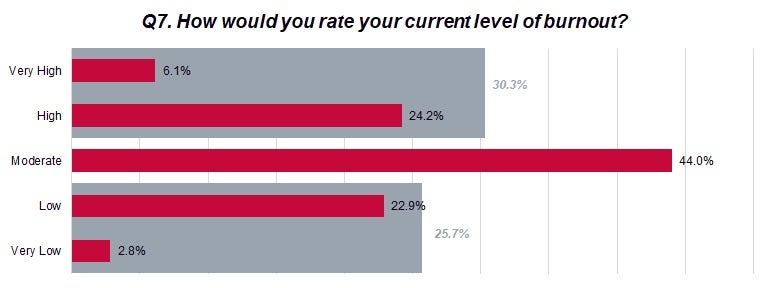
Overall, participants feel positive, with five out of six (83 percent) indicating that their emotional state during the pandemic is good, although almost half (47 percent) selected the mildest available option (somewhat good).
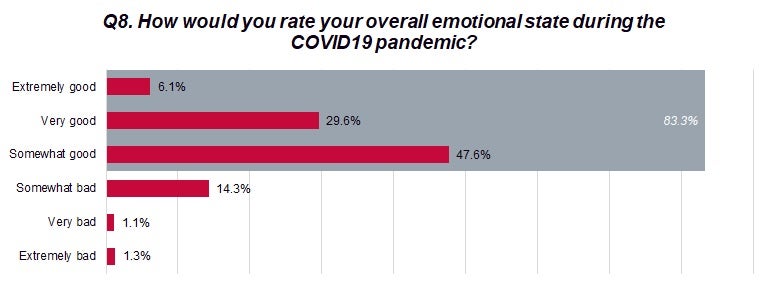
Finally, participants were asked to indicate whether they had attended any virtual activities to relax and connect with others. A majority reported attending a cocktail party, and 42 percent attended a virtual fitness class. Worship services, meditation, and virtual meals were less popular options, and 20 percent of participants have not attended any virtual wellness activities during the pandemic. Nine percent reported taking part in another virtual event, including book clubs, online yoga, and trivia nights.
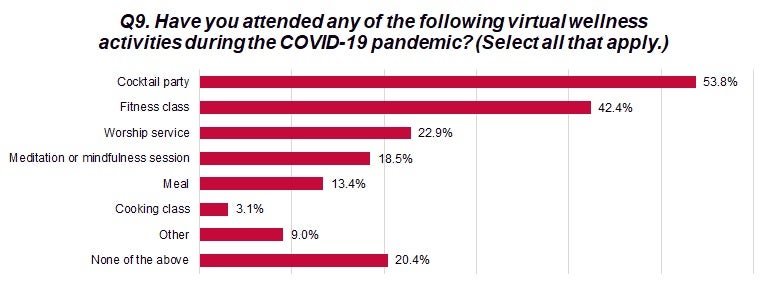
COVID-19 has impacted the wellbeing of the respondents, as it has disrupted businesses and communities all over the world. An overwhelming majority have experienced some wellness-related symptoms, and the reported levels of burnout are cause for concern. However, participants also feel positive towards work, with a clear majority working from home and feeling good overall, which signals that we can look forward to the next months with moderate optimism.
ACC will continue to monitor the effects of the COVID-19 pandemic on our membership and on the legal department. Additional resources are available on ACC COVID-19 Resource Center page.